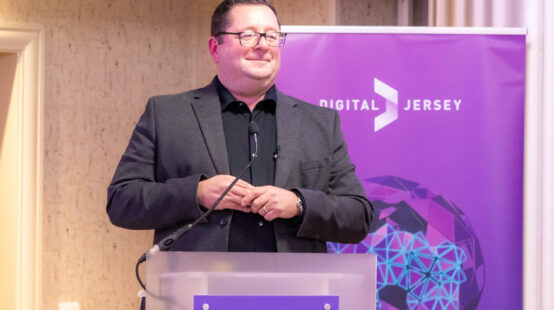
If you imagine an ‘Influencer’ in the context of social media, it tends to bring to mind a youngster in a hoody making YouTube videos doing some crazy stunt or other.
Nothing could be further from this description when we consider Dr Ruth Wandhöfer, Global Fintech 50 Influencer, Partner Gauss Ventures, Co-Founder and Partner Sinonyx, I-NED Permanent TSB and Digital Identity Net, Adviser ETPPA and RTGS.global,
She’s earned that title – plus many more besides – thanks to her years of experience in the industry which have given her a very good understanding of where the market problems lie in areas such as payments, financial markets infrastructure and capital markets.
A quick glance at her website reveals a string of industry accolades. She was recently named one of 2020’s top 10 global fintech influencers by the Fintech Power 50.
I ask her what it means to be a fintech influencer.
“I have quite a good feeling for people running businesses well in a down-to-earth manner,” she explains.
“Some of it is really being very pragmatic and very practical, but I guess these titles come from the fact that I’ve been a venture capitalist involved in identifying certain firms that are very interesting as investment targets.”
Not only that, she’s also a well-respected presence on social media.
“I’m not a lot on LinkedIn but if I am, I either publish something useful or I endorse some interesting perspective.
“Over the years publications like Fintech Times or Fintech 50 pick you up as someone who is an influencer because I know quite a lot of things and a lot of people and I can connect the dots well.
“And I’ve been quite accurate so far on supporting and endorsing certain companies that have been very successful and continue to be successful.
“So, it’s maybe more the interest that I personally have in that sector, understanding the foundational technologies and how firms are using those and how they come up with different business models that really take away some of the grounds of the old world financial industry, which is too often based on information symmetries and rent seeking.”
As 2020 draws to a close, it’s fair to say it’s been an ‘interesting’ year as we’ve got to grips with living through a pandemic in which virtually no area of our lives has been untouched.
The banking world has been no different, and some radical shifts have taken place, particularly large institutions.
“The fact that everyone had to suddenly switch to digital and remote working, almost literally everyone, was a massive exercise and some really had problems and others found it easier.
“On average we’ve seen that the emerging fintech startup world, which by definition is also a smaller industry with smaller businesses and smaller headcounts, has been very agile in responding to the challenge of the pandemic. These businesses operate natively in a technological way, remotely often as well, which gave them an advantage over the big financial institutions.”
It’s meant a radical rethink on the retail banking side too, she says.
“[It’s shown] the importance of still having a human contact via a call centre as opposed to a chatbot where you usually get the wrong answer. Having in a time of crisis someone to speak to and having the call centres quickly trained and updated on changes in the banks or fintech’s approach… call centres certainly were vital for banks to be operated well. It’s something that no-one is really planning on cutting cost on right now.
“Because the chatbot isn’t as refined and as operational to tackle some of those challenges. Especially if you are in retail banking, mortgage banking with payment holidays and mortgage holidays, things get a lot more complicated. People have had to adjust very, very quickly.”
It’s created opportunities in some unlikely places, she says.
A lot of financial institutions have had many plans for the last few years on modernising core infrastructures, creating more digital processes, automating, having certain pet projects, in all sorts of areas, data, payments, trade finance you name it. But a lot of the stuff really never gets decided.
“So, some of those digital graveyard projects actually got executed suddenly overnight because they had to.
“It really depends on the type of business you are running. Business models that focused on automation, moving existing activity into the digital, have tended to be incredibly successful and will continue to be so.
“I think on top of this it finally allows us to imagine a new way of doing capital markets, for example. People talk about tokenisation, fractionalizing assets, giving access to investments through broader retail communities in a fairer way.
We increasingly see businesses preferring direct listings to IPOs. A further option would be to move to token based digital asset issuance and trading. I think there are so many opportunities in capital markets to cut the value chain of providers that are no longer needed if you adopt a different technology stack and automate processes along the way.
“If you can do some of this in a very resilient and robust way with technology, you can achieve a much more open, efficient business model and you really don’t need some of the stuff that people thought they needed for the last 50 years.”
The same goes for cross-border payments, she adds.
“People continue to innovate, for example what we are doing with RTGS.global, creating a new way of making cross-border payments. Technology innovation has been significant over the last 12 -18 months and permits things that were far out of reach in the not to recent past.
“Everyone will have to continue to cut costs but at the same time they really cannot do this to the detriment of functionality. You have to have a cleverer way of thinking about your business and continuously redefine and adapt your business model.”
What can Digital Jersey do to nurture growth and capitalise on the changes that we’re seeing?
“I think it’s great that you have that initiative, and certainly Jersey is an interesting place where we have seen some fintech business develop already. Given that we are now in this beautiful working from home environment, I wouldn’t be surprised if you could also attract more companies and more individuals to work from Jersey and I think it’s about the combination around the government regulatory angle and what sort of things are permitted, taxation and in light of Brexit, maybe Jersey will become some sort of happy island that’s hopefully not too much impacted by the potential consequences of Brexit. I think there’s a great opportunity to attract more business through a combination of government support, taxation and regulation.”



